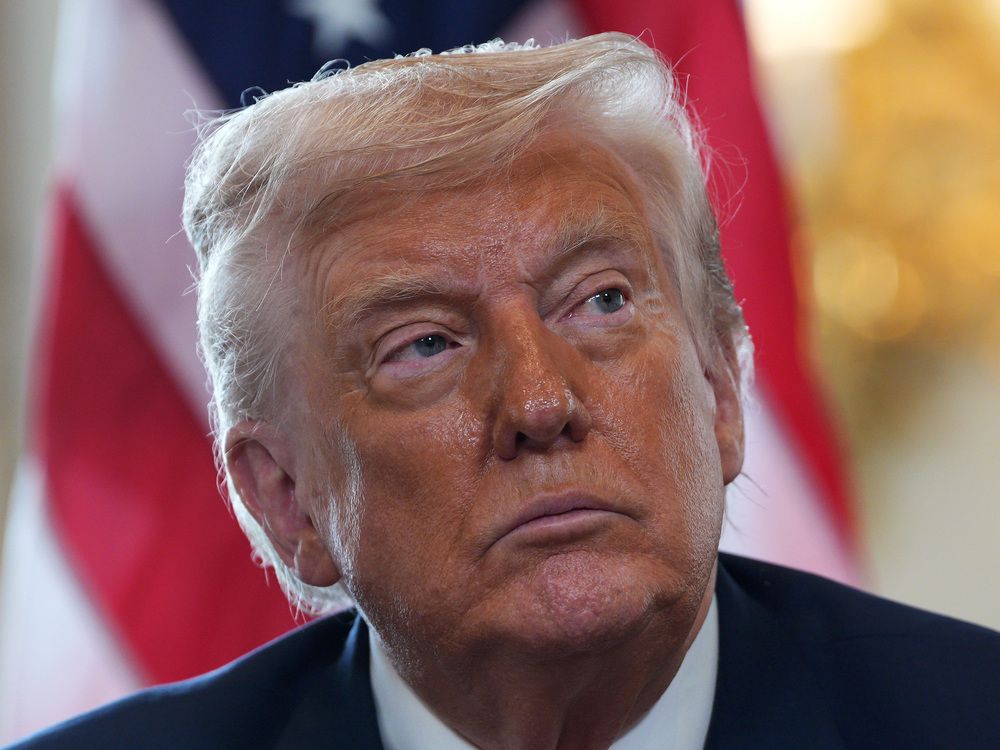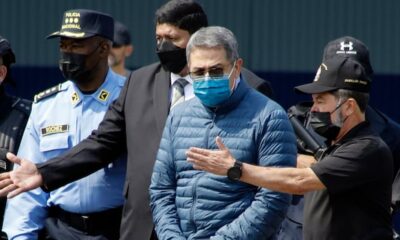Top Stories
Trump’s Trade Deals Raise Questions Over Fairness and Reciprocity

UPDATE: President Donald Trump is finalizing a series of trade deals that promise tariff-free access for the U.S. while imposing heavy tariffs on imports from other countries. Details remain scarce, but these agreements could reshape international trade dynamics and raise critical questions about fairness and reciprocity.
Countries like the U.K., EU, and Japan are facing tariffs ranging from 10% to 20% on goods entering the U.S., while American products enjoy zero tariffs abroad. This stark imbalance raises alarms about the administration’s commitment to equitable trade practices, a principle that was previously emphasized by the White House.
The question on many minds is: How will China respond? Traditionally resistant to Trump’s aggressive trade tactics, China’s approach remains uncertain as negotiations continue. Observers are left wondering if President Xi Jinping will leverage strategies from “The Art of the Deal” to counter U.S. pressure.
Critics argue that this new regime appears more like affirmative action for American businesses, suggesting that domestic firms cannot compete without government intervention. This approach contrasts sharply with traditional economic theories that advocate for minimal government involvement and trust in free market dynamics.
Additionally, Japan has committed to purchasing 100 Boeing aircraft and investing $550 billion in the U.S., raising eyebrows over the nature of these arrangements and their implications for international investment. Will the U.S. maintain control over profits derived from these investments?
As these developments unfold, industry experts warn that the U.S. is risking the long-standing principle of reciprocity in trade. Tariffs of 10-20% on foreign goods while allowing zero tariffs on U.S. exports contradict the very essence of equitable trade relations.
The implications for American consumers and businesses could be significant. With tariffs potentially driving up prices on imported goods, many are left to wonder how these changes will affect their purchasing power. Politicians are urged to step back from micromanaging the economy and allow markets to dictate the flow of trade.
As the situation develops, businesses and consumers alike should stay alert. The economic landscape could shift dramatically based on how these trade deals come to fruition. The future of international trade hangs in the balance, and the coming weeks will be crucial in determining the trajectory of U.S. trade policy.
What happens next? Stakeholders are closely monitoring negotiations, and the public is encouraged to engage in discussions about the potential impact of these trade agreements. The path forward remains uncertain, but one thing is clear: the stakes are high, and the outcome will affect millions globally. Stay tuned for further updates as more information emerges regarding these pivotal trade agreements.
-

 Politics4 weeks ago
Politics4 weeks agoSecwepemc First Nation Seeks Aboriginal Title Over Kamloops Area
-

 World5 months ago
World5 months agoScientists Unearth Ancient Antarctic Ice to Unlock Climate Secrets
-

 Entertainment5 months ago
Entertainment5 months agoTrump and McCormick to Announce $70 Billion Energy Investments
-

 Science5 months ago
Science5 months agoFour Astronauts Return to Earth After International Space Station Mission
-

 Lifestyle5 months ago
Lifestyle5 months agoTransLink Launches Food Truck Program to Boost Revenue in Vancouver
-

 Technology3 months ago
Technology3 months agoApple Notes Enhances Functionality with Markdown Support in macOS 26
-

 Lifestyle3 months ago
Lifestyle3 months agoManitoba’s Burger Champion Shines Again Amid Dining Innovations
-

 Top Stories2 months ago
Top Stories2 months agoUrgent Update: Fatal Crash on Highway 99 Claims Life of Pitt Meadows Man
-

 Politics4 months ago
Politics4 months agoUkrainian Tennis Star Elina Svitolina Faces Death Threats Online
-

 Sports5 months ago
Sports5 months agoSearch Underway for Missing Hunter Amid Hokkaido Bear Emergency
-

 Politics5 months ago
Politics5 months agoCarney Engages First Nations Leaders at Development Law Summit
-

 Technology5 months ago
Technology5 months agoFrosthaven Launches Early Access on July 31, 2025





















